In a world where the intricacies of health and wellness often seem to unravel at the seams, the quest for natural remedies for diabetes control emerges as a beacon of hope. As the prevalence of diabetes steadily rises,so too does the interest in choice approaches that harness the power of nature to support wellbeing. Patients and caregivers alike are increasingly turning to herbal treatments, dietary adjustments, and holistic practices that not only aim to stabilize blood sugar levels but also promote overall vitality. In this article, we will explore a diverse array of natural remedies that have captured the attention of researchers and health enthusiasts, shedding light on their potential benefits and the science behind them. Join us as we navigate this interesting intersection of tradition and innovation, offering insights that may empower those seeking to take charge of their diabetes management in a more organic way.
Table of Contents
- Understanding Diabetes: The Role of Natural Remedies
- The Power of Diet: Foods to Embrace for Better Blood Sugar Control
- Herbal Allies: Exploring Nature’s Best for Diabetes Management
- Exercise as Medicine: Physical Activity’s Impact on Blood Sugar Levels
- Mind Matters: The Importance of Stress Management in Diabetes Care
- Hydration and Its Influence: How Water Affects Blood Sugar Regulation
- Essential Nutrients: Key Vitamins and Minerals for diabetes Support
- Holistic Approaches: Integrating Natural Remedies into Traditional Treatment
- cooking tips: Easy Ways to Prepare Diabetes-Friendly Meals
- Success Stories: Inspiring Examples of Natural Diabetes Management
- Consulting with Professionals: The Importance of Guidance in Natural Remedies
- Q&A
- In Retrospect
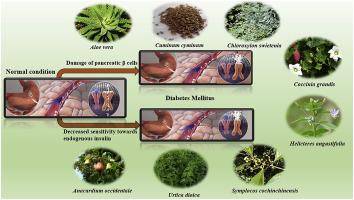
Understanding Diabetes: The Role of Natural Remedies
Diabetes management often leans heavily on medication and lifestyle changes, but many individuals are also interested in exploring natural remedies to complement their treatment. Various studies suggest that certain herbs, spices, and foods can play a supportive role in stabilizing blood sugar levels and promoting overall health. Incorporating these natural remedies may not only enhance the effectiveness of traditional treatments but also contribute to a more balanced lifestyle.
One of the most revered natural ingredients is cinnamon. Research indicates that cinnamon may help lower blood sugar levels and improve insulin sensitivity. This warming spice can be easily added to various dishes, from oatmeal to smoothies, or enjoyed in tea. Other beneficial spices include turmeric, which contains curcumin, known for its anti-inflammatory properties and potential to lower blood sugar, and ginger, which may assist in improving glucose metabolism.
Incorporating certain superfoods into your diet can also provide significant benefits. Foods like chia seeds, quinoa, and leafy greens are excellent sources of fiber and nutrients, which aid in digestion and help maintain stable blood sugar levels. Additionally, fatty fish such as salmon and mackerel are rich in omega-3 fatty acids, known for their anti-inflammatory properties that can definitely help combat insulin resistance. Including these foods in your meals can offer a nutritious way to support your diabetes management plan.
Moreover, the connection between stress and blood sugar levels cannot be overlooked. Natural remedies like adaptogenic herbs, including ashwagandha and rhodiola, may assist the body in managing stress more effectively. By reducing stress, these herbs possibly help regulate cortisol levels, thus preventing fluctuations in blood sugar. Consider incorporating these herbs into your routine as teas or supplements,ensuring to consult with a healthcare professional before starting any new regimen.
| Natural Remedy | Potential Benefits |
|---|---|
| Cinnamon | May lower blood sugar and improve insulin sensitivity. |
| Turmeric | Anti-inflammatory properties; potential to decrease blood sugar. |
| Ginger | improves glucose metabolism. |
| Chia Seeds | High in fiber; helps maintain stable blood sugar. |
| Ashwagandha | Potential to reduce stress and regulate cortisol levels. |

The Power of Diet: Foods to embrace for better Blood Sugar Control
When it comes to managing blood sugar levels naturally, the foods we choose can make a significant difference.Incorporating certain nutrient-dense options into your meals not only helps stabilize glucose levels but also supports overall health. Here are some powerful foods to include in your diet:
- Leafy Greens: Spinach, kale, and Swiss chard are packed with vitamins and minerals while being low in carbohydrates.these veggies help in reducing blood sugar spikes.
- whole Grains: opt for quinoa, barley, and brown rice over refined grains. Whole grains are rich in fiber, which can improve insulin sensitivity.
- Beans and Legumes: Kidney beans, lentils, and chickpeas are high in protein and fiber, helping to slow digestion and prevent rapid increases in blood sugar.
- Nuts and Seeds: Almonds, walnuts, chia seeds, and flaxseeds provide healthy fats and fiber, making them perfect for blood sugar control.
- Fruits: Berries, cherries, and apples are great choices.They are rich in antioxidants and have lower sugar content compared to other fruits.
In addition to individual foods, specific dietary patterns can also enhance blood sugar management. The Mediterranean diet, known for its emphasis on fruits, vegetables, whole grains, fish, and healthy fats like olive oil, has shown promising results for many individuals. This balanced approach ensures that you’re not only controlling blood sugar but also nourishing your body adequately.
Another effective strategy is meal timing and portion control.Eating smaller, more frequent meals throughout the day can help maintain stable blood glucose levels. Focus on spreading your carbohydrate intake evenly, and consider the following tips:
| Tip | Description |
|---|---|
| Eat Regularly | Have meals and snacks at consistent times. |
| Control Portions | Use smaller plates to help manage serving sizes. |
| Include Protein | Combine carbs with protein for a balanced meal. |
Incorporating spices and herbs into your dishes can also provide a flavorful way to enhance blood sugar control.Certain spices, such as cinnamon and turmeric, have been shown to improve insulin sensitivity and reduce inflammation. Try adding these spices to your daily meals for an added health boost:
- Cinnamon: Aids in lowering blood sugar levels and can add a sweet flavor without the calories.
- Turmeric: Contains curcumin, known for its anti-inflammatory properties, which may help improve insulin sensitivity.
- Fenugreek: Rich in soluble fiber, it may help lower blood sugar and improve glucose tolerance.
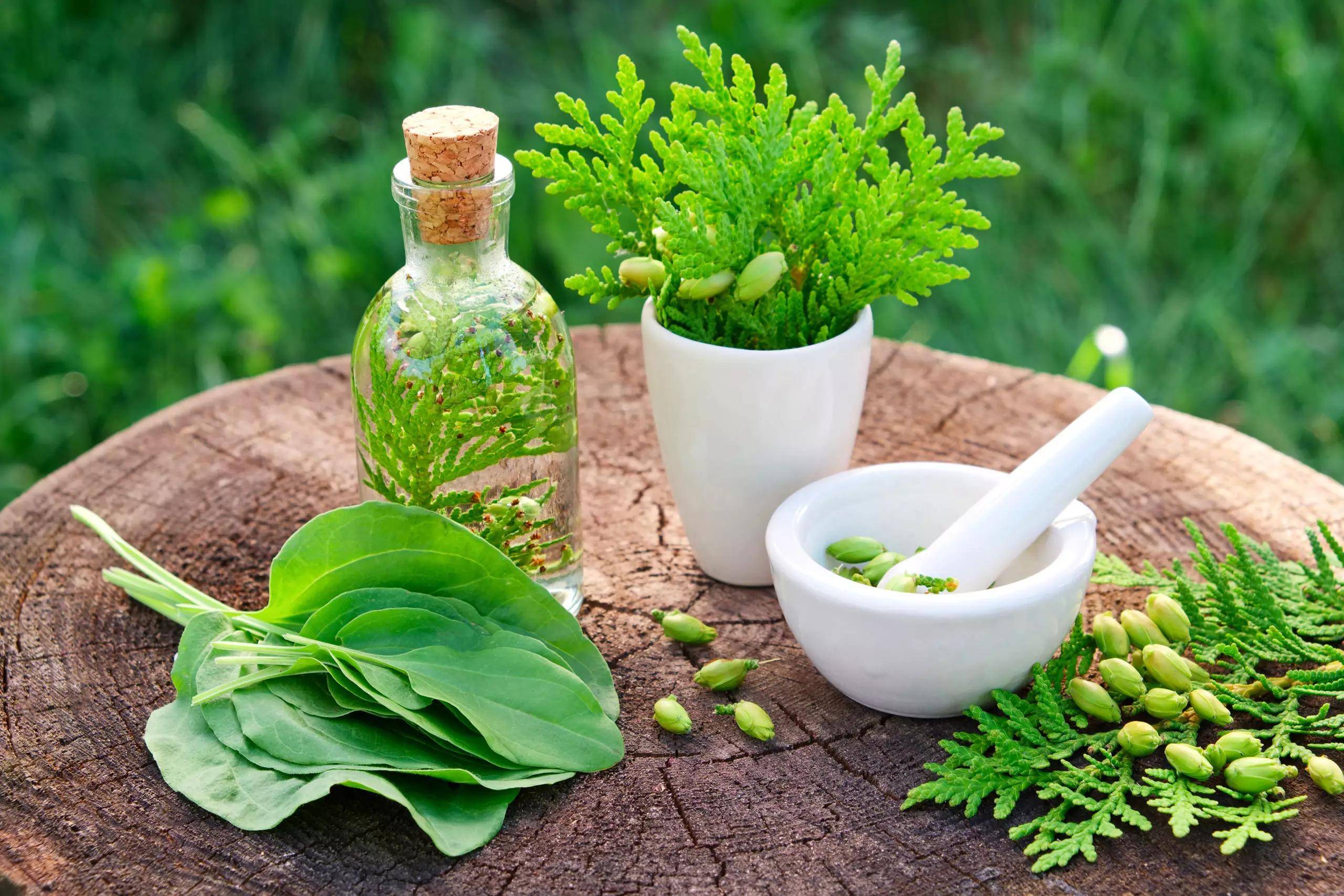
Herbal Allies: Exploring Nature’s Best for Diabetes Management
In the realm of diabetes management, nature possesses a treasure trove of herbal remedies that not only support glucose control but also promote overall well-being. Many herbs have been recognized for their properties in lowering blood sugar and improving insulin sensitivity, making them invaluable allies for those living with diabetes. Below are some of the most effective herbal options that are worth exploring.
one such herb is Fenugreek (Trigonella foenum-graecum), whose seeds are rich in soluble fiber and may help moderate blood sugar levels. Studies suggest that taking fenugreek seeds can enhance glucose tolerance and reduce post-meal sugar spikes. Consuming them in the form of tea or incorporating them into meals can be a flavorful way to harness their benefits.
Ginger (Zingiber officinale) is another powerful contender in the fight against diabetes. Research indicates that ginger can improve fasting blood sugar levels and enhance insulin sensitivity. Including ginger in a variety of dishes, from stir-fries to teas, not only adds a spicy kick but may also aid in better glycemic control.
A lesser-known but potent herb is bitter Melon (Momordica charantia), known for its hypoglycemic properties. The fruit contains compounds similar to insulin, which can help lower blood sugar levels.Bitter melon can be consumed as a juice or cooked in stir-fries, making it a versatile option for those seeking natural remedies.
lastly, Berberine, found in several plants including Goldenseal and Oregon Grape, has been shown in studies to considerably reduce blood sugar and enhance the function of insulin. Its unique ability to affect metabolic pathways makes berberine a valuable supplement in the diabetic care arsenal. always consult a healthcare provider before adding new supplements to your regimen to ensure safety and efficacy.

Exercise as Medicine: Physical Activity’s Impact on Blood Sugar Levels
Incorporating physical activity into your daily routine can be a game-changer in managing blood sugar levels.Exercise enhances the body’s sensitivity to insulin,allowing cells to utilize glucose more effectively. This not only aids in lowering blood sugar but also reduces the risks associated with diabetes complications. Regular workouts promote muscle contractions, which facilitate glucose uptake from the bloodstream, making exercise a vital component of diabetes management.
Different forms of exercise offer distinct benefits for blood sugar control. Consider the following options that can be easily integrated into daily life:
- Aerobic activities: Brisk walking, jogging, cycling, or swimming can significantly improve cardiovascular health and glucose metabolism.
- Strength training: Lifting weights or using resistance bands enhances muscle mass,which plays a crucial role in regulating blood sugar levels.
- Versatility exercises: Activities like yoga and stretching improve overall fitness and can help reduce stress levels, another factor that can influence blood sugar.
It’s essential to find an exercise routine that resonates with personal interests and lifestyle. Engaging in enjoyable activities can lead to sustainability in one’s exercise regimen. As a notable example, joining group classes or teaming up with a workout buddy can add a social dimension to exercise, making it more enjoyable and less of a chore. Keeping track of one’s progress through apps or journals can also enhance motivation and accountability.
Moreover, the timing and duration of physical activity can affect blood sugar levels. Short bursts of exercise throughout the day can be as beneficial as longer sessions. For maximum effect,it’s advisable to pair activities with meals. Here’s a simple guideline:
| Activity | Ideal Timing | Duration |
|---|---|---|
| Walking | After meals | 10-15 minutes |
| Strength Training | 3-4 times a week | 30-60 minutes |
| Yoga | Mornings or evenings | 20-30 minutes |
the relationship between physical activity and blood sugar control is undeniable.By adopting a personalized approach to exercise,individuals can harness its medicinal benefits to combat diabetes effectively. combining various forms of exercise not only helps in managing blood glucose but also contributes to overall health and wellbeing,paving the way for a more balanced lifestyle.

Mind Matters: The Importance of stress Management in Diabetes Care
Effective diabetes management requires a holistic approach, where both physical health and mental well-being are given equal importance. Chronic stress can significantly affect insulin sensitivity and glucose regulation, making it crucial for individuals living with diabetes to prioritize stress management. By integrating stress-reduction techniques into daily routines, individuals can enhance their overall health and improve their diabetes control.
Natural remedies play a vital role in stress management. Here are some effective techniques to consider:
- Meditation: taking even a few minutes each day to engage in meditation can help calm the mind,reduce anxiety,and lower blood pressure.
- Yoga: A blend of physical postures, breathing exercises, and meditation, yoga helps promote relaxation and enhances mindfulness.
- Herbal Teas: Chamomile, lavender, and passionflower teas are great natural options that can assist in reducing stress and promoting restful sleep.
- Aromatherapy: Essential oils such as lavender and eucalyptus can be used in diffusers or added to baths to create a soothing environment.
Diet also plays a crucial role. Foods rich in omega-3 fatty acids such as fatty fish, walnuts, and flaxseeds can help lower cortisol levels, the hormone associated with stress. Incorporating these foods can also support heart health, which is notably significant for those with diabetes:
| food Source | Benefits |
|---|---|
| Fatty fish (e.g., salmon) | Rich in omega-3s, lowers stress and supports heart health |
| Walnuts | High in antioxidants, promotes brain health and reduces inflammation |
| Flaxseeds | Good source of omega-3, aids in cholesterol management |
Physical activity is another cornerstone of stress management. Regular exercise not only boosts mood through the release of endorphins but also has direct benefits on insulin sensitivity and metabolic control. Here are some exercise routines that blend stress relief with physical fitness:
- Walking or Jogging: Simple yet effective, these activities can help clear the mind while regulating blood sugar levels.
- Tai Chi: A gentle form of martial arts that emphasizes slow movements and deep breathing, it’s excellent for stress reduction.
- Dancing: A fun way to raise your heart rate while also engaging socially,which can alleviate feelings of isolation commonly felt by those managing chronic illness.
fostering strong social connections can be a powerful tool in stress management. Engaging in supportive communities can buffer against the emotional challenges presented by diabetes. Consider joining local support groups or online forums where shared experiences can provide comfort and understanding. Remember, sharing struggles and successes with others can create a sense of camaraderie that lessens the burden of stress.
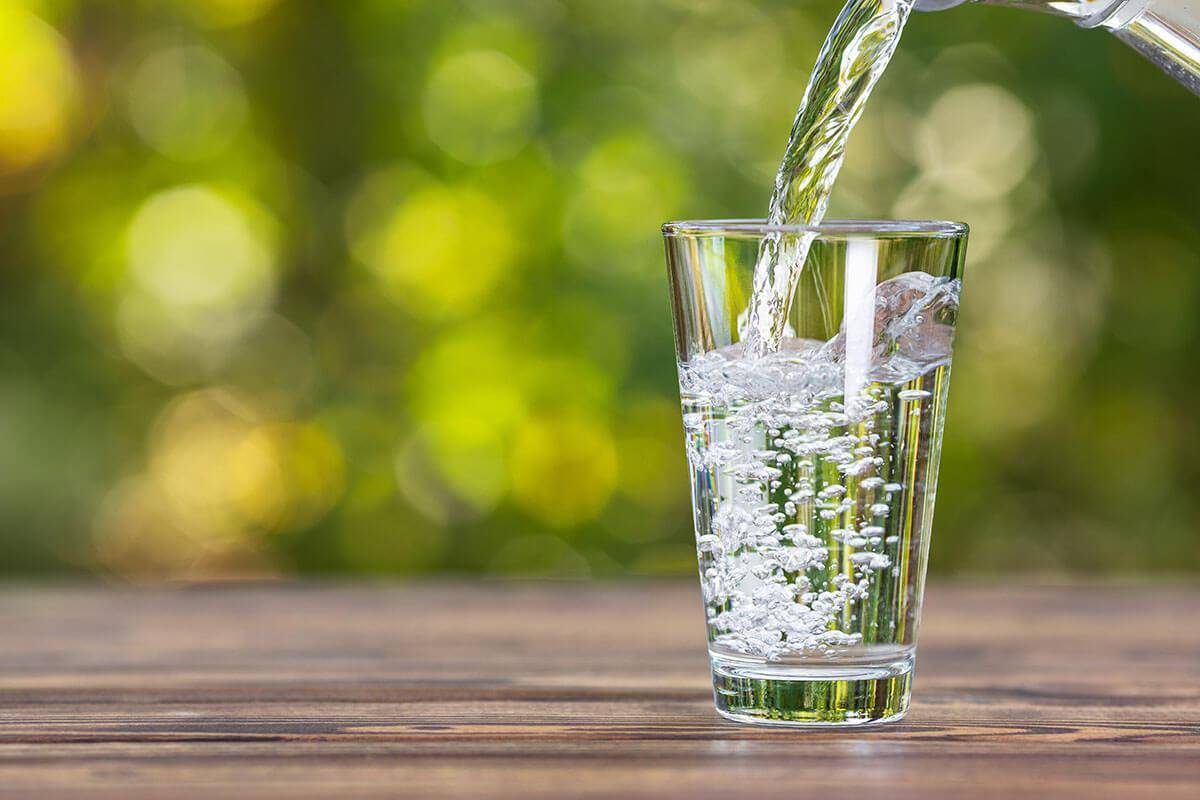
Hydration and Its Influence: How Water Affects Blood Sugar Regulation
Water plays an essential role in maintaining overall health, but its significance extends to a seemingly less-discussed area: blood sugar regulation. Staying adequately hydrated is crucial for your body’s metabolic processes, particularly in how insulin functions. Insulin is the hormone responsible for moving glucose from the bloodstream into cells. When the body is dehydrated, insulin sensitivity can decline, leading to higher blood sugar levels.
Moreover, proper hydration affects the way our kidneys manage glucose.When the body lacks water, the kidneys struggle to filter blood efficiently. This can result in excess glucose remaining in the bloodstream, potentially exacerbating diabetes symptoms. To ensure optimal kidney function and glucose management, it’s vital to drink enough water throughout the day.
Consider the following benefits of drinking water for blood sugar control:
- Increased Insulin Sensitivity: Adequate hydration promotes better cellular response to insulin.
- Enhanced Kidney Function: Water aids the kidneys in filtering excess glucose from the blood.
- improved Appetite Regulation: Sometimes, thirst can be mistaken for hunger, leading to unneeded snacking.
- Support for metabolism: Water is involved in metabolic reactions that convert food into energy.
Studies have shown a relationship between hydration levels and glycemic control. A small increase in daily water intake can significantly impact blood sugar levels, especially in individuals who are already pre-diabetic or diabetic. It’s also beneficial to incorporate water-rich foods, such as fruits and vegetables, into your diet as they contribute to hydration while providing essential vitamins and minerals.
To further illustrate the influence of water on blood sugar levels, consider the following table that outlines fluid intake recommendations based on daily activity levels:
| activity Level | Recommended Daily Water Intake |
|---|---|
| Low (Sedentary Lifestyle) | 2.5 liters (10 cups) |
| Moderate (Light Exercise) | 3 liters (12 cups) |
| High (Intensive Exercise) | 3.5 – 4 liters (14-16 cups) |
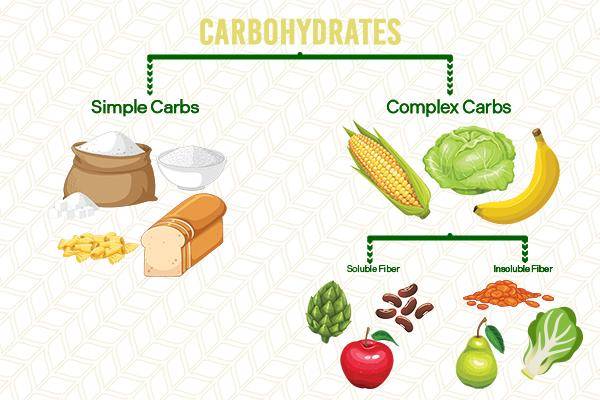
Essential Nutrients: Key Vitamins and Minerals for Diabetes Support
Managing diabetes effectively involves more than just medication; it also encompasses a balanced intake of essential nutrients. Vitamins and minerals play a significant role in regulating blood sugar levels, enhancing insulin sensitivity, and supporting overall health. Incorporating these nutrients into your daily diet can help maintain glucose control and promote well-being.
Chromium is one of the vital minerals that has garnered attention for its potential benefits in diabetes management. This trace mineral is known to enhance insulin action, which helps cells utilize blood glucose more efficiently. Foods high in chromium include:
- Broccoli
- grapes
- Whole grains
- Nuts
Another key player is magnesium,which is often overlooked yet crucial for glucose metabolism. Studies suggest that adequate magnesium intake may improve insulin sensitivity and lower the risk of developing type 2 diabetes. To boost magnesium levels, consider adding the following foods to your meals:
- Leafy green vegetables
- Legumes
- Seeds and nuts
- Whole grains
Additionally, Vitamin D is essential for optimal immune function and may influence insulin secretion and sensitivity. Low levels of Vitamin D have been associated with an increased risk of diabetes. To naturally increase your Vitamin D levels, include foods like:
- Fatty fish (salmon, mackerel)
- Mushrooms
- Fortified dairy products
| vitamin/mineral | Benefits for Diabetes | Food Sources |
|---|---|---|
| Chromium | Enhances insulin action | Broccoli, nuts, whole grains |
| Magnesium | Improves insulin sensitivity | Leafy greens, legumes, seeds |
| Vitamin D | Supports immune function | Fatty fish, mushrooms, fortified dairy |
Lastly, incorporating Omega-3 fatty acids into your diet has been shown to reduce inflammation and may improve insulin sensitivity. These essential fats can be found in high amounts in cold-water fish, walnuts, and flaxseeds. Focusing on these nutritional elements not only helps in managing diabetes but also maximizes overall health and vitality.

Holistic Approaches: Integrating Natural Remedies into Traditional Treatment
Incorporating natural remedies alongside traditional diabetes treatments can create a holistic approach that addresses both the symptoms and underlying causes of the condition. These remedies frequently enough emphasize the importance of a balanced lifestyle that includes attention to diet, physical activity, and emotional well-being. By merging these practices with conventional medicine, patients may experience more comprehensive management of their diabetes.
One prominent method involves the use of herbs and botanicals. Certain plants, such as bitter melon, cinnamon, and fenugreek, have been shown in studies to help regulate blood sugar levels. incorporating these ingredients into daily cooking or as supplements can be a flavorful way to support traditional treatments. Additionally,their antioxidant properties can offer deeper benefits,safeguarding overall health.
Nutrition plays a crucial role in blood sugar control. A focus on a whole food diet rich in fiber, lean proteins, and healthy fats can definitely help stabilize glucose levels. Incorporating foods such as:
- Leafy greens – packed with nutrients and low in calories
- Berries – provide antioxidants and fiber
- Whole grains – support improved digestion and lower glycemic response
By consciously selecting nutrient-dense foods, individuals can enhance their treatment plans and promote better health outcomes.
another key component of a holistic approach is stress management. Elevated stress can lead to insulin resistance, complicating blood sugar control. Techniques such as:
- Meditation – to enhance mindfulness and reduce anxiety
- Yoga - to promote relaxation and fitness
- Aromatherapy – utilizing essential oils to enhance emotional well-being
can serve as valuable tools to support emotional health and contribute positively to diabetes management.
establishing a supportive community can play a pivotal role in maintaining personal health. Regularly attending support groups or engaging with online forums can provide encouragement and shared experiences. Mutual support can facilitate motivation, knowledge sharing, and accountability.This sense of community can significantly enhance both emotional resilience and lifestyle changes, making it easier to adopt and maintain a holistic approach to managing diabetes.
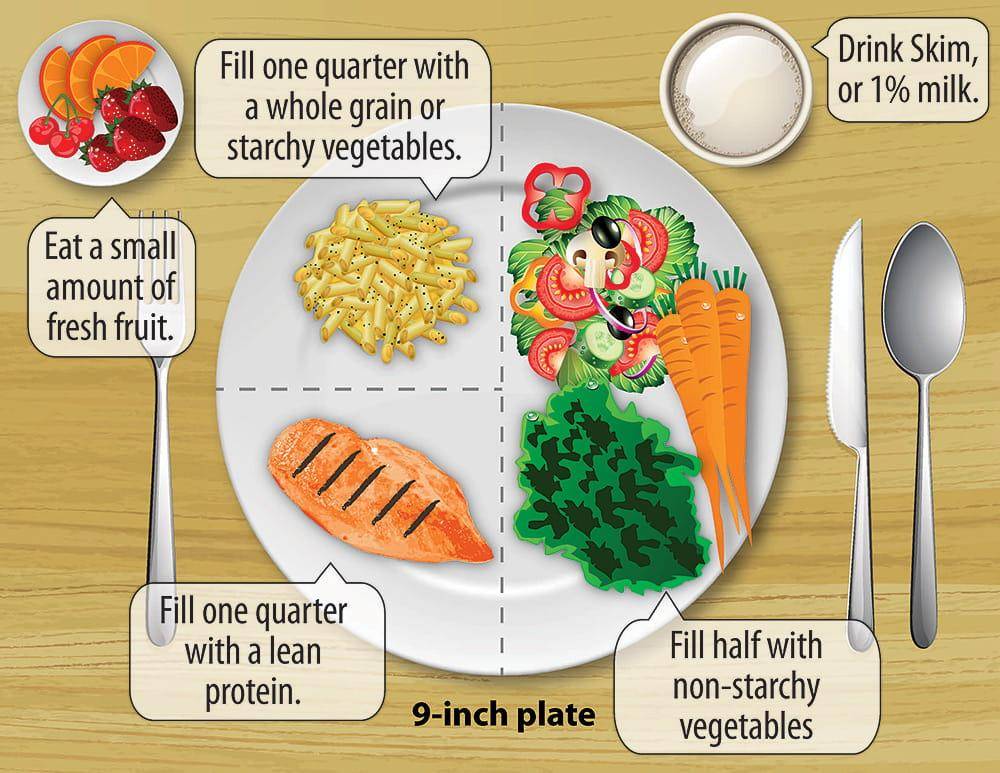
Cooking Tips: Easy Ways to Prepare Diabetes-Friendly Meals
- Incorporate Whole Grains: Opt for whole grains like quinoa, brown rice, and barley which can help control blood sugar levels due to their high fiber content.
- Prioritize Lean Proteins: Choose lean meats such as chicken or turkey, and explore plant-based proteins like lentils and chickpeas that won’t spike blood sugar rapidly.
- Load Up on Non-starchy Vegetables: Fill your plate with a variety of colorful vegetables like spinach, kale, bell peppers, and broccoli to enhance nutrients without added sugars.
- Watch Portions: By being mindful of portion sizes, especially when it comes to carbohydrates, you can better manage blood sugar levels.
- Experiment with Herbs and Spices: Flavor your dishes with herbs like basil, rosemary, and spices such as cinnamon and turmeric; they not only add taste, but can also have health benefits.
Another effective method in creating balanced meals is to combine nutrients intelligently. Pairing proteins with healthy fats and fiber-rich carbohydrates can help slow the absorption of sugar in the bloodstream:
| Protein Source | Healthy fat | Fiber-Rich Carb |
|---|---|---|
| Grilled Chicken | Avocado | Quinoa |
| Baked Salmon | Olive Oil | Sweet Potato |
| Tofu | Nut Butter | Chickpeas |
Additionally, meal prepping can help maintain consistency in your dietary routine. Set aside a few hours during the week to prepare and portion out your meals. This not only saves time but also deters impulsive food choices. Consider these prepping techniques:
- batch Cooking: Prepare larger quantities of healthy dishes to last several days.
- Portion Control: Use containers to accurately divide meals into servings based on your nutritional needs.
- Snack Packs: Create convenient snack options using nuts, veggies, and hummus to satisfy cravings without excess sugars.
Lastly, always remember the importance of hydration and sipping on diabetes-friendly beverages. Instead of sugary drinks,embrace water,herbal teas,or infused waters with fruits like lemon or cucumber. Staying hydrated not only supports digestion but can also help control hunger levels, further assisting in stable blood sugar management.
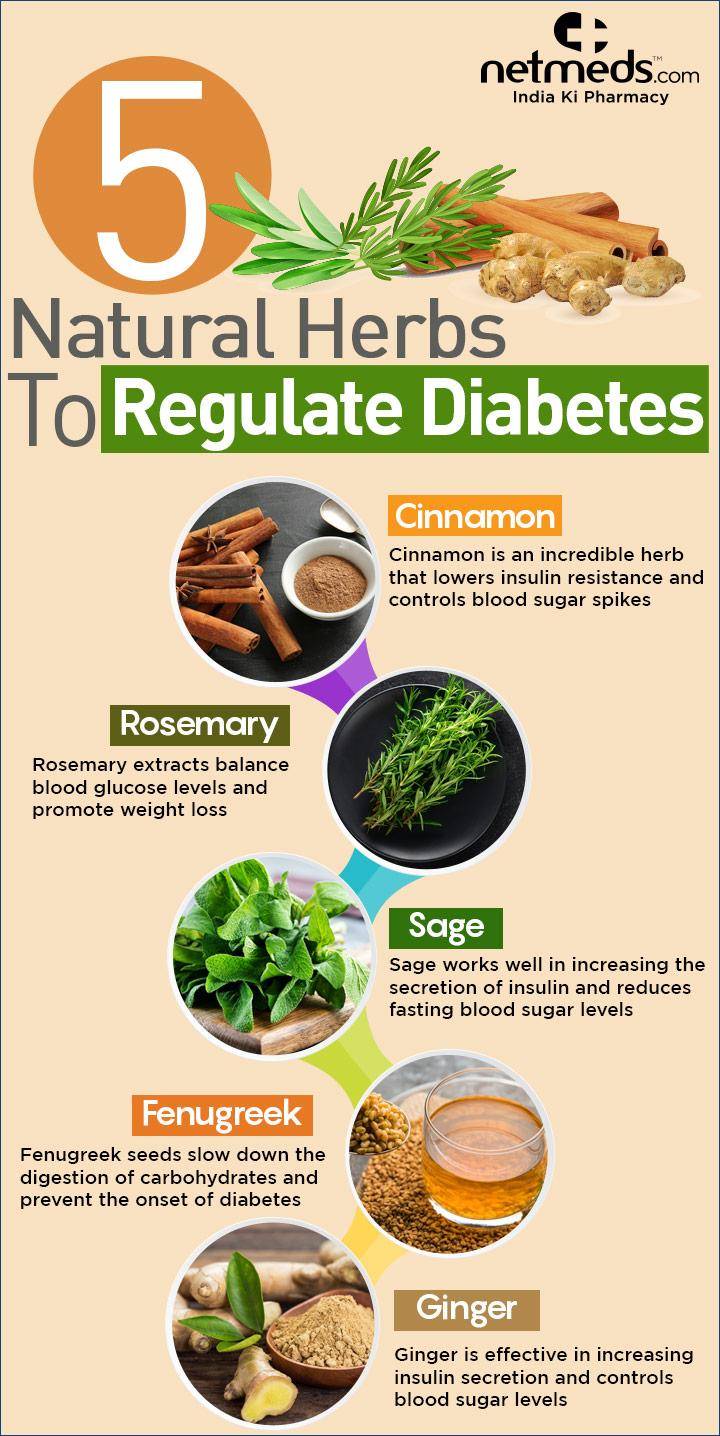
Success Stories: Inspiring Examples of Natural Diabetes management
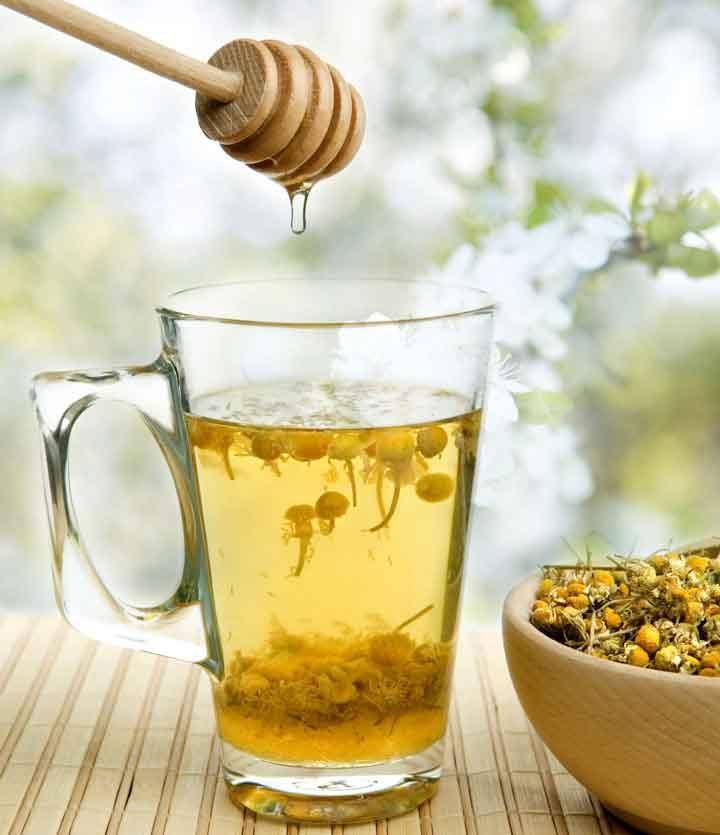
consulting with Professionals: The Importance of Guidance in Natural Remedies
When venturing into the world of natural remedies for diabetes management, seeking the expertise of professionals can significantly elevate your approach. The efficacy of herbal supplements and dietary changes often hinges on personalized guidance, ensuring that interventions are tailored to individual health profiles. Without professional advice, one might overlook critical factors, such as contraindications with existing medications or underlying health conditions.
Healthcare providers and nutritionists bring valuable insight into the use of natural remedies,as they can offer evidence-based recommendations based on your unique metabolic requirements. For instance,different herbal options like bitter melon and fenugreek may be beneficial,yet their suitability may vary. A professional can help determine:
- Your individual tolerance to these remedies
- Appropriate dosages for maximized benefits
- Potential interactions with current treatments
- Monitoring strategies to assess efficacy
Additionally,professionals can introduce you to holistic approaches that encompass various lifestyle factors. Understanding how stress, sleep, and physical activity interact with blood sugar levels is vital for managing diabetes effectively. With their guidance, you may incorporate practices such as:
- Mindfulness and stress reduction techniques
- Customized exercise plans
- Proper hydration and its role in glucose management
Moreover, professionals can track your progress through regular check-ups and assessments, allowing for necessary adjustments. Keeping a record of your dietary habits,blood sugar levels,and the effects of natural remedies becomes more systematic with expert support. An example of such tracking might potentially be structured as follows:
| Date | Blood Sugar Level | natural Remedy Used | Notes |
|---|---|---|---|
| 2023-10-01 | 140 mg/dL | Bitter Melon | Noticed slight decrease |
| 2023-10-08 | 130 mg/dL | Fenugreek | More stable throughout the day |
professional consulting fosters a supportive environment where questions can be raised and explored without judgment. This social aspect is critical; it provides accountability and can boost motivation. Sharing experiences within a clinical setting encourages a communal approach to wellness, allowing you to learn not just from professionals but also from fellow sufferers on similar journeys.
Q&A
Q&A: Natural Remedies for Diabetes Control
Q1: What are some effective natural remedies for diabetes control?
A1: Ther are several natural remedies that many people have found beneficial in managing diabetes.These include dietary supplements like cinnamon, which can definitely help improve insulin sensitivity, and bitter melon, thought to mimic insulin. Additionally,incorporating foods rich in omega-3 fatty acids,such as flaxseeds and walnuts,may contribute to better blood sugar regulation. Don’t forget the power of spices like turmeric and ginger, along with a robust intake of fiber from fruits, vegetables, and whole grains!
Q2: How can lifestyle changes complement natural remedies for diabetes?
A2: Lifestyle changes play a crucial role in diabetes management and can enhance the effects of natural remedies. Regular physical activity helps improve insulin sensitivity, while stress reduction techniques such as yoga or meditation can lower blood sugar levels. Adequate sleep and maintaining a healthy weight can further support your body’s natural regulation of glucose.
Q3: Are there specific herbs I should consider adding to my diet?
A3: Absolutely! Several herbs have been shown to support blood sugar control. As a notable example, fenugreek seeds are rich in soluble fiber, which can definitely help manage blood sugar levels. Gymnema sylvestre has been used traditionally to reduce sugar cravings and improve insulin function. Additionally, licorice root and aloe vera may have beneficial effects on blood glucose levels. Always consult your healthcare provider before adding new herbs to your regimen.
Q4: Is it safe to rely solely on natural remedies for diabetes management?
A4: While natural remedies can be supportive, they should not replace conventional medical treatments without professional guidance. Diabetes is a complex condition that often requires a multifaceted approach,including medication,dietary adjustments,and monitoring. Always discuss with your healthcare provider before making significant changes to your management plan.
Q5: How can I incorporate these natural remedies into my daily routine?
A5: Integrating natural remedies into your daily routine can be straightforward.Start by adding a sprinkle of cinnamon to your morning oatmeal or smoothies. Include a portion of bitter melon or fenugreek in your meals, and consider a herbal tea that features ingredients like nettle or dandelion for a refreshing twist.Meal prepping with whole, nutrient-dense foods can make a significant impact, too, ensuring you have healthy options readily available.Q6: Are there any precautions I should take with natural remedies?
A6: Yes, while natural doesn’t always mean safe, it’s wise to approach remedies with caution. Be sure to research potential side effects and interactions with medications you may currently be taking. For instance, some herbs may affect blood sugar levels significantly, so monitoring your blood sugar closely is essential when introducing new remedies. Always consult a healthcare professional, especially if you have existing health conditions or are pregnant.
Q7: How long does it take to see results from natural remedies?
A7: The timeline for seeing results can vary based on the individual and the specific remedy used. Some people notice improvements in their blood sugar levels within a few weeks, while for others, it may take several months of consistent use. The key is patience and persistence, alongside regular monitoring of your health.Q8: Can these natural remedies work for everyone with diabetes?
A8: Not all natural remedies have the same effect on everyone; individual responses can vary. Factors like genetics, lifestyle, blood sugar levels, and overall health can influence how well a remedy works for you. It’s crucial to approach any new treatment thoughtfully and to find the combination that best supports your unique body.
Q9: Where can I find more details about these natural remedies?
A9: You can begin your exploration by consulting reputable health websites, academic journals, or books focusing on holistic health and diabetes management. Local health food stores or herbal shops frequently enough provide knowledgeable staff who can assist you in finding natural remedies. Remember, however, that it’s best to balance your newfound knowledge with professional healthcare advice!
In Retrospect
In the complex world of diabetes management, natural remedies offer a complementary approach to traditional treatments, bridging the gap between lifestyle and health. As we have explored, embracing nature’s bounty can empower individuals in their journey towards better blood sugar control. From the humble cinnamon to the versatile bitter melon, these remedies are not just alternatives; they are powerful allies that, when incorporated thoughtfully alongside medical guidance, can lead to improved health outcomes.
As you navigate your path, remember that every individual’s experience with diabetes is unique. It is essential to consult with healthcare professionals before making any significant changes. By forging a partnership with nature and modern medicine, you can cultivate a holistic strategy that resonates with your lifestyle and personal health goals.
With determination and a bit of creativity, you can harness the wisdom of natural remedies to support your journey. Ultimately, it’s about finding what works best for you and empowering yourself with knowledge and resources. That way, you can take meaningful steps toward controlling your diabetes and enhancing your overall well-being—one small adjustment at a time.


